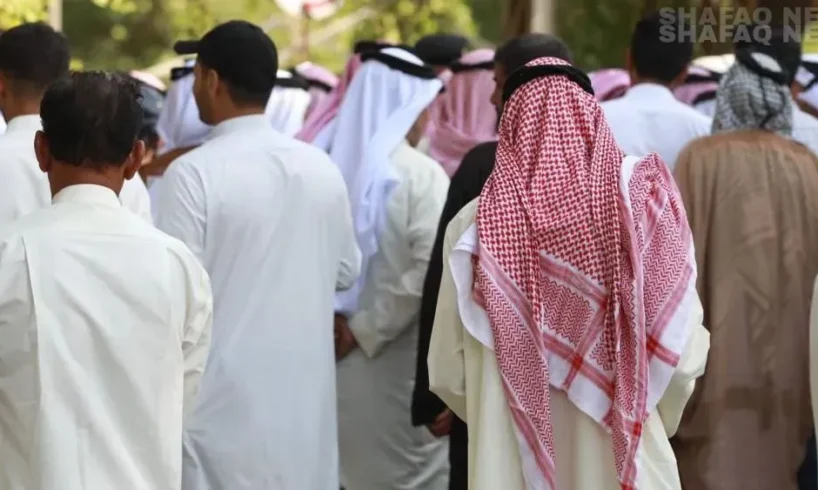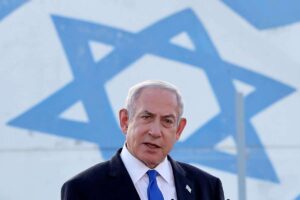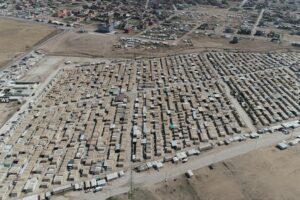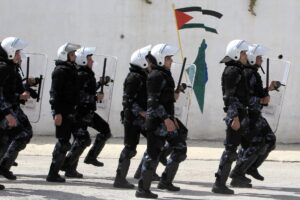
Shafaq News
In Iraq’s intricate political landscape—still
defined by sectarian, ethnic, and regional divides—one institution continues to
steer the nation’s course: the tribe. As Iraq heads toward the November 11,
2025, parliamentary elections, kin-based alliances once grounded in protection
and honor have evolved into potent tools of negotiation and electoral leverage.
From Al-Anbar’s plains to Baghdad’s alleys
and Basra’s waterfronts, clan gatherings now serve as centers of political
outreach. For many Iraqis, these networks still provide what the state often
fails to deliver: mediation, welfare, and belonging. Two decades after Saddam
Hussein’s fall, Iraq’s paradox endures—modern governance remains inseparable
from traditional loyalties. Elections may be digitized and legally regulated,
yet they unfold within enduring hierarchies of kinship and personal allegiance.
From History to Political Instrument
The bond between lineage and authority dates
back to Ottoman times, when tribal leaders were entrusted with local administration.
Successive powers—from the British Mandate to the Baathist regime—preserved
this structure, and Saddam Hussein later institutionalized it to consolidate
control, particularly after the Iran–Iraq War.
Following the 2003 US invasion, these social
frameworks—not state institutions—absorbed the shocks of transition. Today,
roughly 200 major tribes and over 2,000 sub-clans remain central to Iraq’s
social fabric, often transcending sectarian boundaries. As campaigning began on
October 3, the Independent High Electoral Commission (IHEC) approved 7,768
candidates competing for 329 parliamentary seats. Yet the real contest unfolds
beneath tribal tents, where elders’ endorsements frequently outweigh party
manifestos.
Candidates pursue legitimacy through kinship
rather than policy, as councils still mediate disputes, administer customary
justice, and wield authority forged through decades of conflict. Governance by
lineage has thus evolved into a political mechanism deeply embedded in Iraq’s
patronage economy.
Read more: How does political conflict fuel tribal disputes in Iraq?
Power, Patronage, and Political Strategy
Tribal influence now lies at the intersection
of finance and politics. Parties and armed factions exchange contracts, funds,
and appointments for allegiance—turning endorsement into a transactional
currency that blurs the line between representation and clientelism.
Speaking to Shafaq News, Sheikh Hamid
al-Shawka, spokesman for the Al-Anbar Council of Elders, warned that “political
parties have turned tribes into electoral battlegrounds,” adding that “the power
of cash outweighs the freedom of choice.” He urged fellow sheikhs to shield
their councils from “political infiltration” and reclaim their moral authority.
Such tensions are visible across several
provinces, where rival clans within the same tribe back competing candidates,
sometimes sparking local clashes. Elders in Al-Anbar and Saladin have
intervened to prevent escalation.
Prime Minister Mohammed Shia al-Sudani has
tried to balance these dynamics. During his June 2025 visit to Al-Anbar—a Sunni
stronghold—he avoided partisan imagery, meeting independent tribal figures to
project neutrality. Earlier, at February’s General Tribal Conference, he called
tribes “a cornerstone of the national project,” urging them to support the rule
of law and reconciliation. His Reconstruction and Development Alliance includes
tribal leaders, reflecting a pragmatic bid for grassroots legitimacy.
Former Prime Minister Nouri al-Maliki
continues to rely on entrenched tribal blocs to reinforce his State of Law
Coalition. At a rally in Babil last September, he invoked themes of order and
continuity to appeal to conservative voters.
Sunni political leaders also lean heavily on
tribal structures as engines of electoral mobilization—especially in Al-Anbar,
Nineveh, Saladin, and Diyala, where tribal affiliations remain deeply rooted in
social and political life. Figures like Khamis al-Khanjar, leader of the
Sovereignty Alliance (Al-Siyada), and Mohammed al-Halbousi, former parliament
speaker and head of the Taqadum alliance, have consistently courted tribal
sheikhs through visits, public gatherings, and development pledges. While
framed as consultations or outreach, such encounters are in practice vital
components of electoral strategy.
Tribal leaders, in turn, act as power brokers
capable of securing collective votes for specific candidates or
lists—particularly in rural districts where clan loyalty outweighs party
ideology. In recent election cycles, both al-Khanjar and al-Halbousi have
strengthened their influence by cultivating ties with key tribal figures who
can deliver turnout in strategically important constituencies. This has produced
a transactional model in which promises of services, reconstruction projects,
and government positions are exchanged for electoral endorsement.
Different methods, same reality: no Iraqi
politician can afford to ignore tribal allegiance.
Read more: TRIBES, POLITICAL PARTIES, AND THE IRAQI ELECTIONS: A SHIFTING DYNAMIC
Reformist Voices and Analytical Insight
Amid this transactional landscape, some
leaders call for a moral reset. Sheikh Shia Mohammed al-Bahadli, head of the
Bahadil tribe, told Shafaq News that tribal power “can serve as a moral compass
when directed toward capable and honest candidates,” stressing that “the tribe
should support those who serve the nation, not those who exploit it.”
Analysts interpret these appeals through a
structural lens. Political analyst Sabah al-Uqaili told Shafaq News that tribal
power “dilutes the agency of individual voters,” noting that some sheikhs treat
ballots as pre-secured, discouraging merit-based competition and sidelining
qualified candidates lacking kinship backing. He emphasized that reform depends
on civic awareness to “prioritize competence and integrity over lineage,”
warning that until then, “parliament will mirror identity more than
performance.”
Political researcher Ghalib al-Daami offered
a complementary perspective, describing tribal and sectarian voting as “a
mirror of Iraq’s enduring social composition.” He observed that “rarely does an
Arab vote for a Kurd, or a Turkmen for an Arab,” reflecting identity politics
that empower entrenched elites.
“Coalitions are formed along sectarian and
ethnic lines, not reformist ones,” al-Daami said. “Power in Iraq is negotiated,
not legislated.”
Read more: Financial muscle: How money shapes Iraq’s upcoming elections
Beyond political patronage, economic
insecurity sustains this system. Where the state fails to provide jobs or
services, the tribe becomes the safety net, and voters view loyalty as an
investment in survival.
Together, these perspectives show that while
tribalism provides social stability, it also constrains democratic development.
Tribes remain essential mediators where the state falters and, for many Iraqis,
the most trusted institution in a system marred by corruption. Yet that trust
allows elites to exploit tribal loyalties, perpetuating dependency over reform.
As al-Uqaili summarized, “The goal is not to
dismantle the tribes, but to channel their influence toward civic
responsibility rather than clientelism.”
Ultimately, the 2025 elections are not only
about who governs next, but about how Iraq defines governance itself: as a
republic of citizens or a federation of clans negotiating coexistence. The
tribe will undoubtedly shape the outcome—but whether it advances or restrains
Iraq’s democratic journey remains the country’s defining test.
Read more: Elections stir ghosts of Iraq’s sectarian past
Written and edited by Shafaq News staff.





